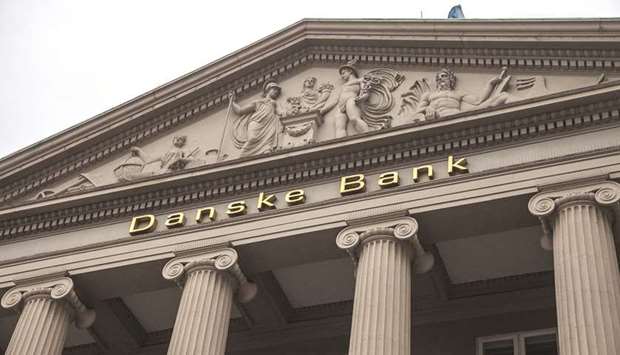A proposal outlining tougher penalties for money laundering, which had been due during parliament’s spring session, now won’t see the light of day until October at the earliest, according to people familiar with the process.
The main reason for the delay is a scandal in which it’s alleged that more than $9bn in mostly Russian money was laundered through Danske Bank between 2007 and 2015, the people said. The scale of the potential breaches is so huge that Danish politicians now want their original proposal to be much tougher, they said. Cabinet is also spending more time figuring out how to calculate fines and how big penalties can be, one of the people said.
Danske is already the target of criminal investigations in Denmark and Estonia. Morten Bodskov, a former justice minister and a spokesman for the opposition Social Democrats, says the scandal surrounding the bank has also prompted lawmakers to rewrite a strategy paper for combating financial crime, which may come as early as next week.
Bodskov noted that Business Minister Rasmus Jarlov, who joined the cabinet in June, has signalled he wants to take a much harsher stance to tackle such crime.
“Despite comprehensive agreements, laws and efforts to clean up the industry, there has been a number of cases in recent years that have weakened confidence in banks,” the Social Democrats wrote in their proposal. “The Panama Papers, the Lux-leaks and the current and wide-reaching money laundering scandal at Danske Bank are the latest examples of banks’ failures and dishonesty.”
Danske has said it is co-operating with the relevant authorities. The bank is planning to publish the findings of an internal investigation before the end of September. Shares in the bank traded about 1% lower on Thursday, while the Bloomberg index of European financials was down about 0.5%.
Read more about analyst views on the risks facing Danske investors
To be sure, the measures now being considered by lawmakers are unlikely to be made retroactive. That means potential laundering breaches by Danske will probably still be covered by older laws, to the extent that statutes of limitation don’t apply.
The Danish Financial Supervisory Authority in May ordered Danske to hold an additional $800mn in regulatory capital in connection with the laundering case. Since then, it has emerged that the amounts laundered through the bank may be considerably bigger than first thought, and some analysts have suggested that Danske may face a significant penalty.
“We want fines to match or exceed what a bank might have made on money laundering,” Lisbeth Bech Poulsen, a spokeswoman for the opposition Socialist People’s Party, said. “It can’t be that a bank is able to make more money breaking the law than the penalty it will pay if caught.”
Bill Browder, the founder and chief executive officer of Hermitage Capital who has filed criminal complaints against Danske for its alleged laundering breaches, said it’s key that lawmakers come up with appropriate disincentives.
“How seriously and how aggressively law enforcement acts in these cases will determine in the future whether banks and other intermediaries continue to facilitate money laundering,” Browder said by phone this week.

